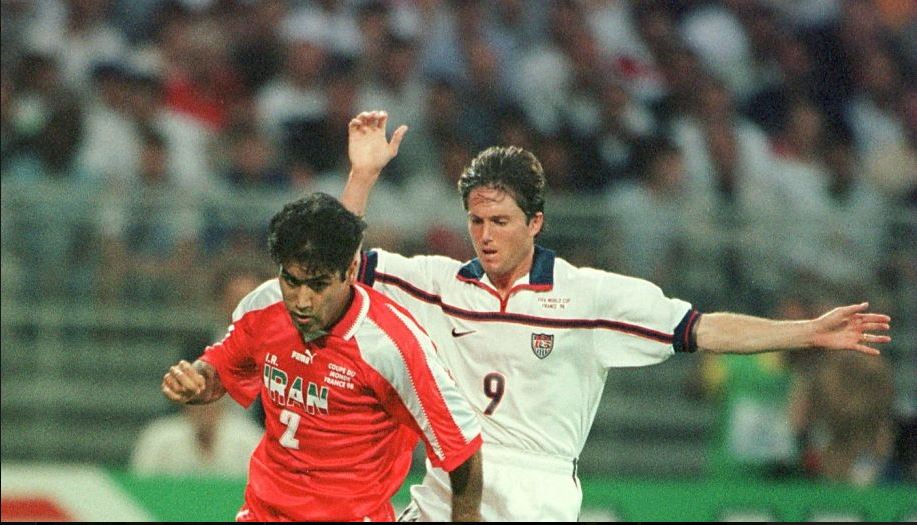DOHA, Qatar (AP) — The American and Iranian soccer teams are the only ones putting politics aside as the sides meet in a match to determine if either nation continues in this World Cup.
The two met at the 1998 World Cup in France when memories of the 1979 Islamic Revolution were still fresh for both countries. Even the White House was talking about the game as then-President Bill Clinton and Secretary of State Madeline Albright used the match to discuss the possible resumption of diplomatic relations with Iran, which had been cut off since the 1979-81 hostage crisis.
The State Department a month before that game called Iran the world’s “most active″ sponsor of terrorism, so nerves were frayed for both nations. And just a week ahead of kickoff, a French television station broadcast the 1991 film “Not Without My Daughter,″ a movie based on the true story of an American woman who escaped Iran with her daughter against the wishes of her Iranian husband.
The Iranians claimed the broadcast was a purposeful insult.
Iran won 2-1 but neither team advance to the knockout round. They met one other time — a 1-1 draw in a 2000 friendly.
Now the teams head into their final Group B match Tuesday and the United States can only advance with a win. Iran would advance with a win, and perhaps a draw depending on the results of England’s match against Wales.
But headed into one of the most politically charged matches — rematch in this case — in tournament history, the conversation was again not centered on winning or losing.
In Monday’s pre-match news conference, United States captain Tyler Adams and coach Gregg Berhalter were asked about a variety of social and political subjects that had nothing to do with what happens on the field. Adams was asked to defend the U.S.’s treatment of Black people and chastised for pronouncing the opponent “Eye-ran” instead of “E-ran.”
Berhalter was questioned about U.S. immigration and Naval policy and also apologized for the U.S. Soccer Federation’s decision to strip the emblem of the Islamic Republic from Iran’s flag in a since-deleted social media post.
Iran coach Carlos Queiroz was asked about the social media post, which led the governing body of Iranian soccer to demand FIFA expel the United States from the tournament. He said he did not intend to use the controversy as motivation.
“If after 42 years in this game as a coach I still believe that I could win games with those mental games, I think I did not learn nothing about the game,” Queiroz said. “We have solidarity with the humanitarian causes all over the world, whatever they are or who they are. If you talk about human rights, racism, kids that die in schools with shootings, we have solidarity to all those causes, but here our mission is to bring smiles for the people at least for 90 minutes.”
TWO AT A TIME
Tuesday marks the final day of play for both Groups A and B, and it is the first day of simultaneous kickoffs.
The practice of starting two games at the same time began in 1986, four years after a match dubbed the “Disgrace of Gijon.” The match was scandalous because West Germany and Austria both knew that a German win by one or two goals would advance both teams at the expense of Algeria.
After Germany scored an early goal, neither team tried to score again.

